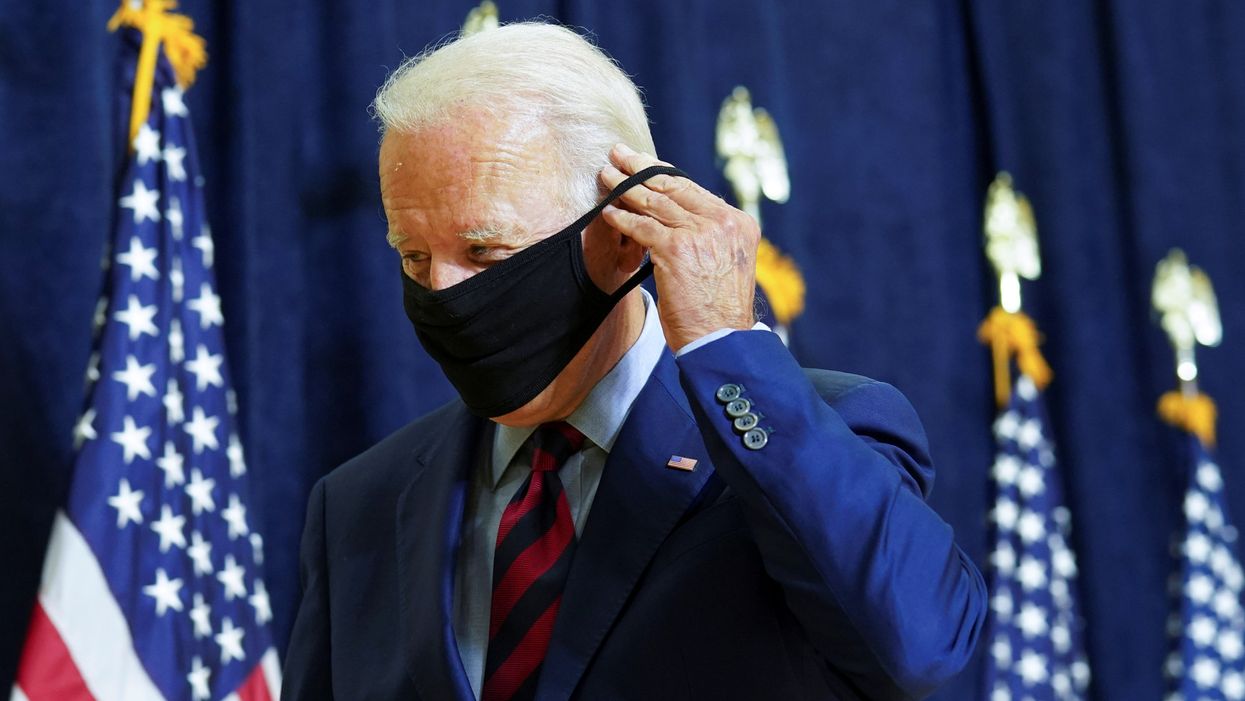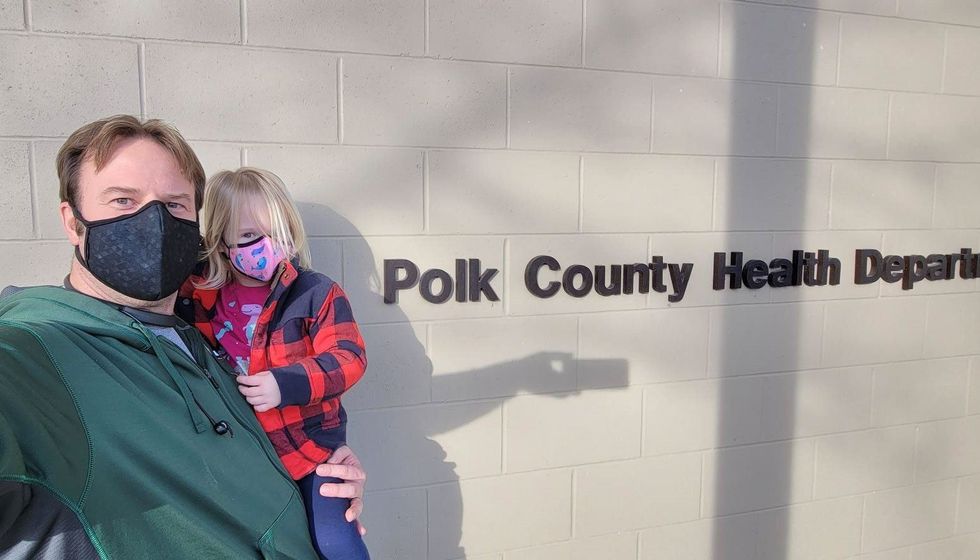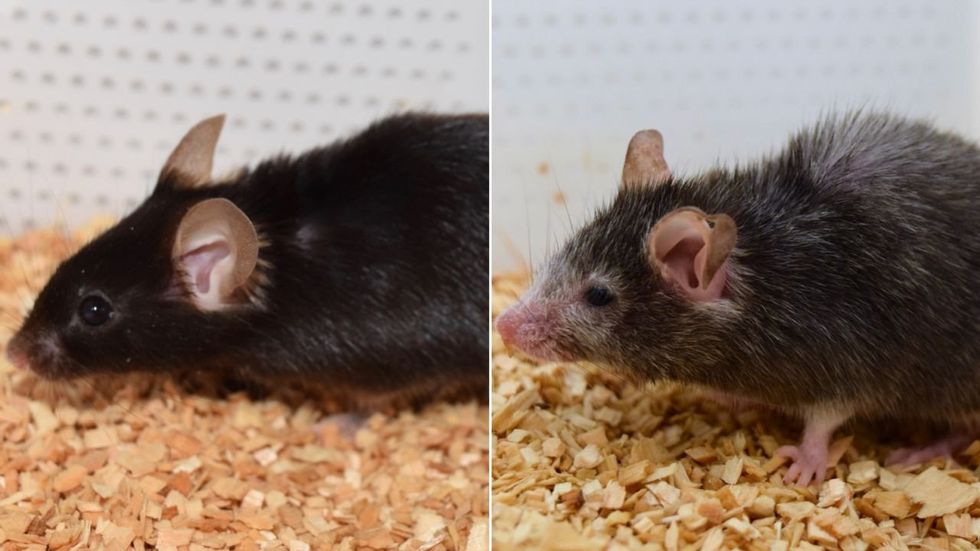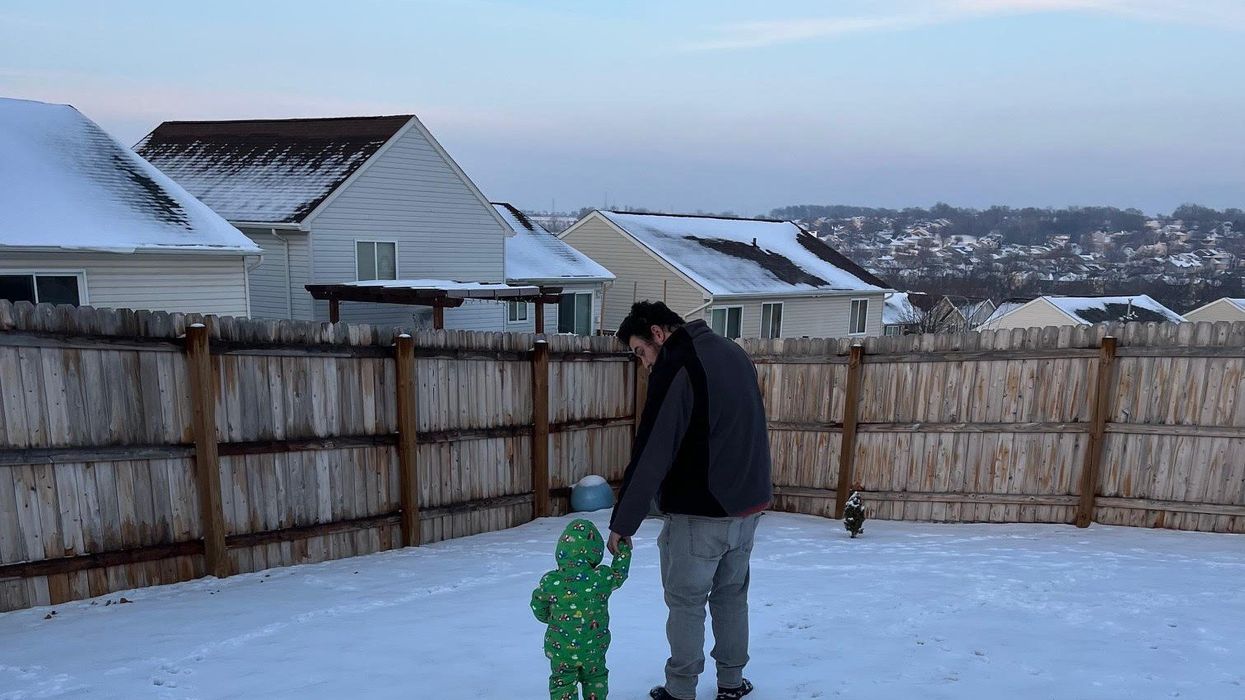Biden’s Administration Should Immediately Prioritize These Five Pandemic Tasks
Dr. Adalja is focused on emerging infectious disease, pandemic preparedness, and biosecurity. He has served on US government panels tasked with developing guidelines for the treatment of plague, botulism, and anthrax in mass casualty settings and the system of care for infectious disease emergencies, and as an external advisor to the New York City Health and Hospital Emergency Management Highly Infectious Disease training program, as well as on a FEMA working group on nuclear disaster recovery. Dr. Adalja is an Associate Editor of the journal Health Security. He was a coeditor of the volume Global Catastrophic Biological Risks, a contributing author for the Handbook of Bioterrorism and Disaster Medicine, the Emergency Medicine CorePendium, Clinical Microbiology Made Ridiculously Simple, UpToDate's section on biological terrorism, and a NATO volume on bioterrorism. He has also published in such journals as the New England Journal of Medicine, the Journal of Infectious Diseases, Clinical Infectious Diseases, Emerging Infectious Diseases, and the Annals of Emergency Medicine. He is a board-certified physician in internal medicine, emergency medicine, infectious diseases, and critical care medicine. Follow him on Twitter: @AmeshAA

Democratic U.S. presidential nominee and former Vice President Joe Biden puts his face mask back on after answering questions following a speech on the effects on the U.S. economy of the Trump administration's response to the coronavirus disease (COVID-19) pandemic during a campaign event in Wilmington, Delaware, U.S., September 4, 2020.
The response to the COVID-19 pandemic will soon become the responsibility of President-elect Biden. As is clear to anyone who honestly looks, the past 10+ months of this pandemic have been a disastrous litany of mistakes, wrong actions, and misinformation.
The result has been the deaths of 240,000 Americans, economic collapse, disruption of routine healthcare, and inability of Americans to pursue their values without fear of contracting or spreading a deadly infectious disease. With the looming change in administration, many proposals will be suggested for the path forward.
Indeed, the Biden campaign published their own plan. This plan encompasses many of the actions my colleagues and I in the public health and infectious disease fields have been arguing for since January. Several of these points, I think, bear emphasis and should be aggressively pursued to help the U.S. emerge from the pandemic.
Support More and Faster Tests
When it comes to an infectious disease outbreak the most basic question that must be answered in any response is: "Who is infected and who is not?" Even today this simple question is not easy to answer because testing issues continue to plague us and there are voices who oppose more testing -- as if by not testing, the cases of COVID cease to exist. While testing is worlds better than it was in March – especially for hospital inpatients – it is still a process fraught with unnecessary bureaucracy and delays in the outpatient setting.
Just this past week, friends and colleagues have had to wait days upon days to get a result back, all the while having to self-quarantine pending the result. This not only leaves people in limbo, it discourages people from being tested, and renders contact tracing almost moot. A test that results in several days is almost useless to contact tracers as Bill Gates has forcefully argued.
We need more testing and more actionable rapid turn-around tests. These tests need to be deployed in healthcare facilities and beyond. Ideally, these tests should be made available for individuals to conduct on themselves at home. For some settings, such as at home, rapid antigen tests similar to those used to detect pregnancy will be suitable; for other settings, like at a doctor's office or a hospital, more elaborate PCR tests will still be key. These last have been compromised for several months due to rationing of the reagent supplies necessary to perform the test – an unacceptable state of affairs that cannot continue. Reflecting an understanding of the state of play of testing, the President-elect recently stated: "We need to increase both lab-based diagnostic testing, with results back within 24 hours or less, and faster, cheaper screening tests that you can take right at home or in school."
Roll Out Safe and Effective Vaccine(s)
Biden's plan also identifies the need to "accelerate the development of treatments and vaccines" and indeed Operation Warp Speed has been one solitary bright spot in the darkness of the failed pandemic response. It is this program that facilitated a distribution partnership with Pfizer for 100 million doses of its mRNA vaccine -- whose preliminary, and extremely positive data, was just announced today to great excitement.
Operation Warp Speed needs to be continued so that we can ensure the final development and distribution of the first-generation vaccines and treatments. When a vaccine is available, it will be a Herculean task that will span many months to actually get into the arms (twice as a 2-dose vaccine) of Americans. Vaccination may begin for healthcare workers before a change in administration, but it will continue long into 2021 and possibly longer. Vaccine distribution will be a task that demands a high degree of competence and coordination, especially with the extreme cold storage conditions needed for the vaccines.
Anticipate the Next Pandemic Now
Not only should Operation Warp Speed be supported, it needs to be expanded. For too long pandemic preparedness has been reactive and it is long past time to approach the development of medical countermeasures for pandemic threats in a proactive fashion.
What we do for other national security threats should be the paradigm for infectious disease threats that too often are subject to a mind-boggling cycle of panic and neglect. There are an estimated 200 outbreaks of viral diseases per year. Luckily and because of hard work, for many of them we have tools at our hands to control them, but for the unknown 201st virus outbreak we do not –as we've seen this year. And, the next unknown virus will likely appear soon. A new program must be constructed guaranteeing that we will never again be caught blindsided and flatfooted as we have been with the COVID-19 pandemic.
A new dedicated "Virus 201" strategy, program, and funding must be created to achieve this goal. This initiative should be a specific program focused on unknown threats that emanate from identified classes of pathogens that possess certain pandemic-causing characteristics. For example, such a program could leverage new powerful vaccine platform technologies to begin development on vaccine candidates for a variety of viral families before they emerge as full-fledged threats. Imagine how different our world would be today if this action was taken after SARS in 2003 or even MERS in 2012.
Biden should remove the handcuffs from the Centers for Disease Control and Prevention (CDC) and allow its experts to coordinate the national response and to issue guidance in the manner they were constituted to do without fear of political reprisal.
Resurrect Expertise
One of the most disheartening aspects of the pandemic has been the denigration and outright attacks on experts in infectious disease. Such disgusting attacks were not for any flaws, incompetence, or weakness but for their opposite -- strength and competence – and emanated from a desire to evade the grim reality. Such nihilism must end and indeed the Biden plan contains several crucial remedies, including the restoration of the White House National Security Council Directorate for Global Health Security and Biodefense, a crucial body of experts at the White House that the Trump administration bafflingly eliminated in 2018.
Additionally, Biden should remove the handcuffs from the Centers for Disease Control and Prevention (CDC) and allow its experts to coordinate the national response and to issue guidance in the manner they were constituted to do without fear of political reprisal.
Shore Up Hospital Capacity
For the foreseeable future, as control of the virus slips away in certain parts of the country, hospital capacity will be the paramount concern. Unlike many other industries, the healthcare sector is severely constrained in its ability to expand capacity because of regulatory and financial considerations. Hospital emergency preparedness has never been prioritized and until we can substantially curtail the spread of this virus, hospitals must remain vigilant.
We have seen how suspensions of "elective" procedures led to alarming declines in vital healthcare services that range from childhood immunization to cancer chemotherapy to psychiatric care. This cannot be allowed to happen again. Hospitals will need support in terms of staffing, alternative care sites, and personal protective equipment. Reflecting these concerns, the Biden plan outlines an approach that smartly uses the Departments of Defense and Veterans Affairs assets and medical reserve corps, coupled to the now-flourishing telemedicine innovations, to augment capacity and forestall the need for hospitals to shift to crisis standards of care.
To these five tasks, I would add a long list of subtasks that need to be executed by agencies such as the Centers for Medicare and Medicaid, the Food and Drug Administration, and many other arms of government. But, to me, these are the most crucial.
***
As COVID-19 has demonstrated, new deadly viruses can spread quickly and easily around the globe, causing significant loss of life and economic ruin. With nearly 200 epidemics occurring each year, the next fast-moving, novel infectious disease pandemic could be right around the corner.
The upcoming transition affords the opportunity to implement a new paradigm in pandemic response, biosecurity, and emerging disease response. The United States and President-elect Biden must work hard to to end this pandemic and increase the resilience of the United States to the future infectious disease threats we will surely face.
Dr. Adalja is focused on emerging infectious disease, pandemic preparedness, and biosecurity. He has served on US government panels tasked with developing guidelines for the treatment of plague, botulism, and anthrax in mass casualty settings and the system of care for infectious disease emergencies, and as an external advisor to the New York City Health and Hospital Emergency Management Highly Infectious Disease training program, as well as on a FEMA working group on nuclear disaster recovery. Dr. Adalja is an Associate Editor of the journal Health Security. He was a coeditor of the volume Global Catastrophic Biological Risks, a contributing author for the Handbook of Bioterrorism and Disaster Medicine, the Emergency Medicine CorePendium, Clinical Microbiology Made Ridiculously Simple, UpToDate's section on biological terrorism, and a NATO volume on bioterrorism. He has also published in such journals as the New England Journal of Medicine, the Journal of Infectious Diseases, Clinical Infectious Diseases, Emerging Infectious Diseases, and the Annals of Emergency Medicine. He is a board-certified physician in internal medicine, emergency medicine, infectious diseases, and critical care medicine. Follow him on Twitter: @AmeshAA
Bivalent Boosters for Young Children Are Elusive. The Search Is On for Ways to Improve Access.
Theo, an 18-month-old in rural Nebraska, walks with his father in their backyard. For many toddlers, the barriers to accessing COVID-19 vaccines are many, such as few locations giving vaccines to very young children.
It’s Theo’s* first time in the snow. Wide-eyed, he totters outside holding his father’s hand. Sarah Holmes feels great joy in watching her 18-month-old son experience the world, “His genuine wonder and excitement gives me so much hope.”
In the summer of 2021, two months after Theo was born, Holmes, a behavioral health provider in Nebraska lost her grandparents to COVID-19. Both were vaccinated and thought they could unmask without any risk. “My grandfather was a veteran, and really trusted the government and faith leaders saying that COVID-19 wasn’t a threat anymore,” she says.” The state of emergency in Louisiana had ended and that was the message from the people they respected. “That is what killed them.”
The current official public health messaging is that regardless of what variant is circulating, the best way to be protected is to get vaccinated. These warnings no longer mention masking, or any of the other Swiss-cheese layers of mitigation that were prevalent in the early days of this ongoing pandemic.
The problem with the prevailing, vaccine centered strategy is that if you are a parent with children under five, barriers to access are real. In many cases, meaningful tools and changes that would address these obstacles are lacking, such as offering vaccines at more locations, mandating masks at these sites, and providing paid leave time to get the shots.
Children are at risk
Data presented at the most recent FDA advisory panel on COVID-19 vaccines showed that in the last year infants under six months had the third highest rate of hospitalization. “From the beginning, the message has been that kids don’t get COVID, and then the message was, well kids get COVID, but it’s not serious,” says Elias Kass, a pediatrician in Seattle. “Then they waited so long on the initial vaccines that by the time kids could get vaccinated, the majority of them had been infected.”
A closer look at the data from the CDC also reveals that from January 2022 to January 2023 children aged 6 to 23 months were more likely to be hospitalized than all other vaccine eligible pediatric age groups.
“We sort of forced an entire generation of kids to be infected with a novel virus and just don't give a shit, like nobody cares about kids,” Kass says. In some cases, COVID has wreaked havoc with the immune systems of very young children at his practice, making them vulnerable to other illnesses, he said. “And now we have kids that have had COVID two or three times, and we don’t know what is going to happen to them.”
Jumping through hurdles
Children under five were the last group to have an emergency use authorization (EUA) granted for the COVID-19 vaccine, a year and a half after adult vaccine approval. In June 2022, 30,000 sites were initially available for children across the country. Six months later, when boosters became available, there were only 5,000.
Currently, only 3.8% of children under two have completed a primary series, according to the CDC. An even more abysmal 0.2% under two have gotten a booster.
Ariadne Labs, a health center affiliated with Harvard, is trying to understand why these gaps exist. In conjunction with Boston Children’s Hospital, they have created a vaccine equity planner that maps the locations of vaccine deserts based on factors such as social vulnerability indexes and transportation access.
“People are having to travel farther because the sites are just few and far between,” says Benjy Renton, a research assistant at Ariadne.
Michelle Baltes-Breitwisch, a pharmacist, and her two-year-old daughter, Charlee, live in Iowa. When the boosters first came out she expected her toddler could get it close to home, but her husband had to drive Charlee four hours roundtrip.
This experience hasn’t been uncommon, especially in rural parts of the U.S. If parents wanted vaccines for their young children shortly after approval, they faced the prospect of loading babies and toddlers, famous for their calm demeanor, into cars for lengthy rides. The situation continues today. Mrs. Smith*, a grant writer and non-profit advisor who lives in Idaho, is still unable to get her child the bivalent booster because a two-hour one-way drive in winter weather isn’t possible.
It can be more difficult for low wage earners to take time off, which poses challenges especially in a number of rural counties across the country, where weekend hours for getting the shots may be limited.
Protect Their Future (PTF), a grassroots organization focusing on advocacy for the health care of children, hears from parents several times a week who are having trouble finding vaccines. The vaccine rollout “has been a total mess,” says Tamara Lea Spira, co-founder of PTF “It’s been very hard for people to access vaccines for children, particularly those under three.”
Seventeen states have passed laws that give pharmacists authority to vaccinate as young as six months. Under federal law, the minimum age in other states is three. Even in the states that allow vaccination of toddlers, each pharmacy chain varies. Some require prescriptions.
It takes time to make phone calls to confirm availability and book appointments online. “So it means that the parents who are getting their children vaccinated are those who are even more motivated and with the time and the resources to understand whether and how their kids can get vaccinated,” says Tiffany Green, an associate professor in population health sciences at the University of Wisconsin at Madison.
Green adds, “And then we have the contraction of vaccine availability in terms of sites…who is most likely to be affected? It's the usual suspects, children of color, disabled children, low-income children.”
It can be more difficult for low wage earners to take time off, which poses challenges especially in a number of rural counties across the country, where weekend hours for getting the shots may be limited. In Bibb County, Ala., vaccinations take place only on Wednesdays from 1:45 to 3:00 pm.
“People who are focused on putting food on the table or stressed about having enough money to pay rent aren't going to prioritize getting vaccinated that day,” says Julia Raifman, assistant professor of health law, policy and management at Boston University. She created the COVID-19 U.S. State Policy Database, which tracks state health and economic policies related to the pandemic.
Most states in the U.S. lack paid sick leave policies, and the average paid sick days with private employers is about one week. Green says, “I think COVID should have been a wake-up call that this is necessary.”
Maskless waiting rooms
For her son, Holmes spent hours making phone calls but could uncover no clear answers. No one could estimate an arrival date for the booster. “It disappoints me greatly that the process for locating COVID-19 vaccinations for young children requires so much legwork in terms of time and resources,” she says.
In January, she found a pharmacy 30 minutes away that could vaccinate Theo. With her son being too young to mask, she waited in the car with him as long as possible to avoid a busy, maskless waiting room.
Kids under two, such as Theo, are advised not to wear masks, which make it too hard for them to breathe. With masking policies a rarity these days, waiting rooms for vaccines present another barrier to access. Even in healthcare settings, current CDC guidance only requires masking during high transmission or when treating COVID positive patients directly.
“This is a group that is really left behind,” says Raifman. “They cannot wear masks themselves. They really depend on others around them wearing masks. There's not even one train car they can go on if their parents need to take public transportation… and not risk COVID transmission.”
Yet another challenge is presented for those who don’t speak English or Spanish. According to Translators without Borders, 65 million people in America speak a language other than English. Most state departments of health have a COVID-19 web page that redirects to the federal vaccines.gov in English, with an option to translate to Spanish only.
The main avenue for accessing information on vaccines relies on an internet connection, but 22 percent of rural Americans lack broadband access. “People who lack digital access, or don’t speak English…or know how to navigate or work with computers are unable to use that service and then don’t have access to the vaccines because they just don’t know how to get to them,” Jirmanus, an affiliate of the FXB Center for Health and Human Rights at Harvard and a member of The People’s CDC explains. She sees this issue frequently when working with immigrant communities in Massachusetts. “You really have to meet people where they’re at, and that means physically where they’re at.”
Equitable solutions
Grassroots and advocacy organizations like PTF have been filling a lot of the holes left by spotty federal policy. “In many ways this collective care has been as important as our gains to access the vaccine itself,” says Spira, the PTF co-founder.
PTF facilitates peer-to-peer networks of parents that offer support to each other. At least one parent in the group has crowdsourced information on locations that are providing vaccines for the very young and created a spreadsheet displaying vaccine locations. “It is incredible to me still that this vacuum of information and support exists, and it took a totally grassroots and volunteer effort of parents and physicians to try and respond to this need.” says Spira.
Kass, who is also affiliated with PTF, has been vaccinating any child who comes to his independent practice, regardless of whether they’re one of his patients or have insurance. “I think putting everything on retail pharmacies is not appropriate. By the time the kids' vaccines were released, all of our mass vaccination sites had been taken down.” A big way to help parents and pediatricians would be to allow mixing and matching. Any child who has had the full Pfizer series has had to forgo a bivalent booster.
“I think getting those first two or three doses into kids should still be a priority, and I don’t want to lose sight of all that,” states Renton, the researcher at Ariadne Labs. Through the vaccine equity planner, he has been trying to see if there are places where mobile clinics can go to improve access. Renton continues to work with local and state planners to aid in vaccine planning. “I think any way we can make that process a lot easier…will go a long way into building vaccine confidence and getting people vaccinated,” Renton says.

Michelle Baltes-Breitwisch, a pharmacist, and her two-year-old daughter, Charlee, live in Iowa. Her husband had to drive four hours roundtrip to get the boosters for Charlee.
Michelle Baltes-Breitwisch
Other changes need to come from the CDC. Even though the CDC “has this historic reputation and a mission of valuing equity and promoting health,” Jirmanus says, “they’re really failing. The emphasis on personal responsibility is leaving a lot of people behind.” She believes another avenue for more equitable access is creating legislation for upgraded ventilation in indoor public spaces.
Given the gaps in state policies, federal leadership matters, Raifman says. With the FDA leaning toward a yearly COVID vaccine, an equity lens from the CDC will be even more critical. “We can have data driven approaches to using evidence based policies like mask policies, when and where they're most important,” she says. Raifman wants to see a sustainable system of vaccine delivery across the country complemented with a surge preparedness plan.
With the public health emergency ending and vaccines going to the private market sometime in 2023, it seems unlikely that vaccine access is going to improve. Now more than ever, ”We need to be able to extend to people the choice of not being infected with COVID,” Jirmanus says.
*Some names were changed for privacy reasons.
Last month, a paper published in Cell by Harvard biologist David Sinclair explored root cause of aging, as well as examining whether this process can be controlled. We talked with Dr. Sinclair about this new research.
What causes aging? In a paper published last month, Dr. David Sinclair, Professor in the Department of Genetics at Harvard Medical School, reports that he and his co-authors have found the answer. Harnessing this knowledge, Dr. Sinclair was able to reverse this process, making mice younger, according to the study published in the journal Cell.
I talked with Dr. Sinclair about his new study for the latest episode of Making Sense of Science. Turning back the clock on mouse age through what’s called epigenetic reprogramming – and understanding why animals get older in the first place – are key steps toward finding therapies for healthier aging in humans. We also talked about questions that have been raised about the research.
Show links:
Dr. Sinclair's paper, published last month in Cell.
Recent pre-print paper - not yet peer reviewed - showing that mice treated with Yamanaka factors lived longer than the control group.
Dr. Sinclair's podcast.
Previous research on aging and DNA mutations.
Dr. Sinclair's book, Lifespan.


Harvard Medical School

